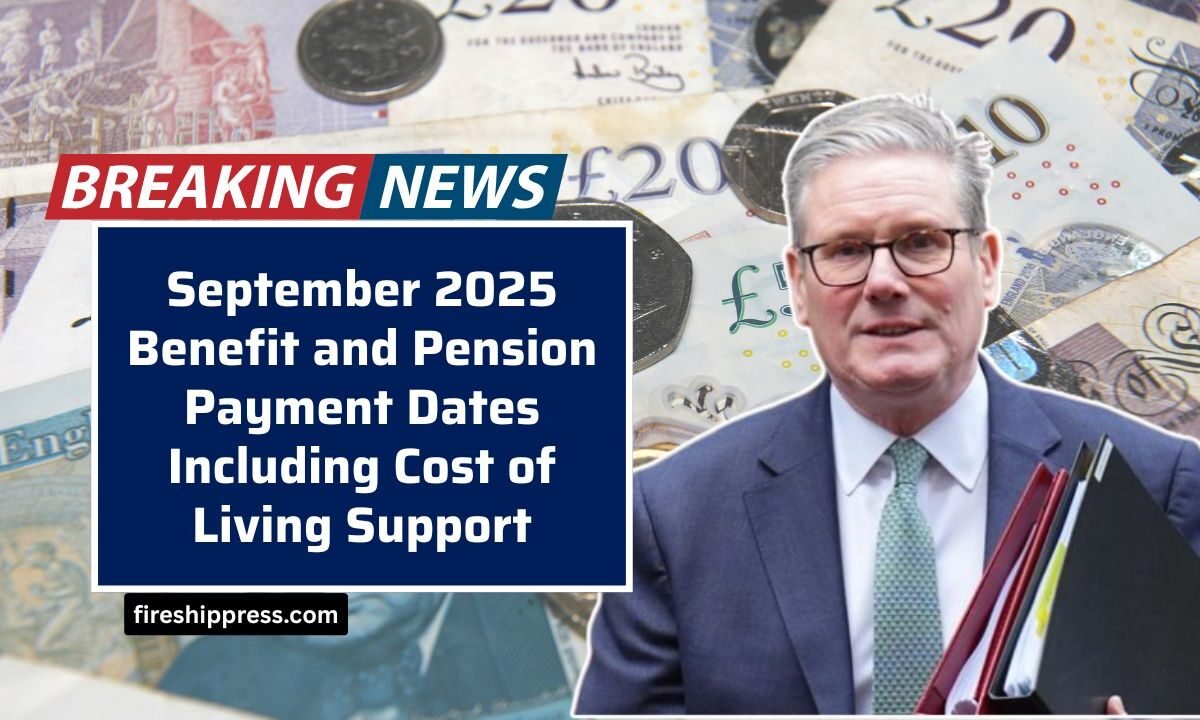As the summer holidays draw to a close, some families in the UK may begin to feel a slight reduction in recent financial pressures. Yet for millions, the cost of living crisis continues to weigh heavily, with rising expenses still outpacing household incomes.
Rising Costs Despite Lower Inflation
According to research from the Resolution Foundation, the price of essentials in the UK has stayed significantly high, even after inflation returned to pre-pandemic levels. While the inflation rate has eased, wages remain stagnant and household bills continue to strain budgets.
- In January 2025, around 7.3 million adults (13.9% of households) experienced food insecurity, according to The Food Foundation.
- Energy arrears have surged, doubling over the past five years, hitting £3.9 billion by the end of 2024.
Millions Missing Out on Benefits
Roughly 24 million people currently claim DWP-administered benefits, equating to one in three citizens. However, research suggests that £23 billion worth of benefits go unclaimed annually. Tools like online benefit calculators can help individuals determine their entitlements.
Benefit Payment Dates – September 2025
With no bank holidays scheduled in September, benefit payments will follow normal schedules. Payments include:
- Universal Credit
- State Pension
- Pension Credit
- Child Benefit
- Disability Living Allowance (DLA)
- Personal Independence Payment (PIP)
- Attendance Allowance
- Carer’s Allowance
- Employment Support Allowance (ESA)
- Income Support
- Jobseeker’s Allowance (JSA)
The DWP is progressing with the transition of all legacy benefits to Universal Credit by January 2026.
State Pension Payment Schedule
The basic state pension is paid directly into bank accounts every four weeks. The exact payment date is tied to the final two digits of an individual’s National Insurance (NI) number:
| NI Number Ending | Payment Day |
|---|---|
| 00–19 | Monday |
| 20–39 | Tuesday |
| 40–59 | Wednesday |
| 60–79 | Thursday |
| 80–99 | Friday |
Benefit Increases
- In April 2025, benefits rose by 1.7%, in line with inflation.
- The state pension increased by 4.1%, equating to £472 more annually, following the triple lock.
- From April 2026 to 2029, Universal Credit will see above-inflation increases, beginning with a 2.3% rise.
- However, the health-related element of Universal Credit for new claimants will be cut from £105 to £50 per month and frozen until 2029.
Additional Support Available
Budgeting Advance Loans
For those on Universal Credit facing emergencies:
- Up to £348 for singles,
- £464 for couples,
- £812 for households with children.
Repayments are interest-free and deducted from UC. From April 2025, deductions will be capped at 15% of the standard allowance (down from 25%).
Discretionary Housing Payment (DHP)
Available through local councils to cover rent shortfalls, deposits, or advance rent, but only for those on Housing Benefit or the housing element of UC.
Household Support Fund (HSF)
Councils distribute grants up to £300 for essentials like energy bills and household goods. The scheme runs until March 2026, before being replaced by a Crisis and Resilience Fund.
Charitable Grants
Certain charities offer support based on specific circumstances such as disability, unemployment, or bereavement.
Energy Provider Schemes
Providers including British Gas, EDF, E.ON, Octopus, and Scottish Power run support programs for struggling customers.
Council Tax Reductions
Households on certain benefits may qualify for a discount of up to 100%. Applications must go through local councils.
Free Childcare
Since September 2025, all working parents can claim 30 hours of free childcare for children up to four years old. Families can also access tax-free childcare with a 20% top-up.
Energy Price Cap Update
- The energy price cap will increase by 2% in October 2025, from £1,720 to £1,755.
- While small, this follows a 7% reduction earlier in the year.
- Households are encouraged to explore fixed tariff deals, many of which are below the cap.
Will There Be Another Cost of Living Payment?
The DWP has confirmed that the Cost of Living Payments scheme ended in February 2024. No additional rounds have been announced for 2025.
Mental Health Support
- Samaritans: Free 24/7 helpline at 116 123.
- Mind: Support line 0300 102 1234 and welfare benefits advice on 0300 222 5782.
- Scope: Online forums for disability-related support.
- NHS England: Online mental health triage service.
While inflation has slowed, the cost of living remains a significant burden for UK households. Families should ensure they are claiming all available benefits and local support schemes to help manage rising costs.
With upcoming welfare reforms, changes to Universal Credit, and ongoing support funds, households must stay informed to maximize their entitlements.
FAQs
No, the next scheduled benefit uprating is in April 2026, when Universal Credit will see above-inflation increases.
You need to apply through your local council, usually via an online form, as each authority decides how to distribute funds.
No, the scheme ended in February 2024, and no new payments have been announced for 2025.




